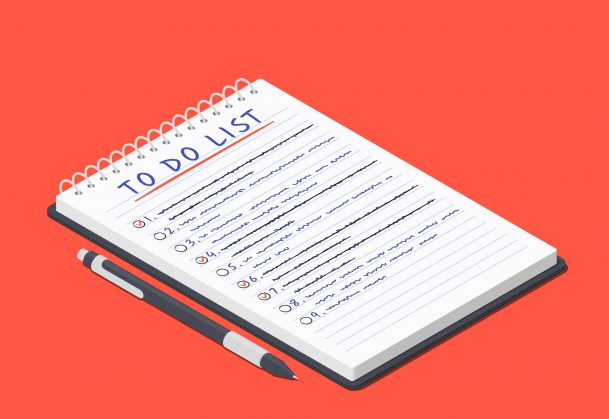First, it allows you to procrastinate indefinitely on those difficult, more challenging tasks since there are always plenty of easy, unimportant, tasks to work on next. And the brain’s default position is to take the path of least resistance. It also helps form a more firmly entrenched habit of doing “busy” work instead of the more important and usually more difficult work. And more critical, it expends much of your mental energy that could be best used on the most important, most difficult tasks.
The more you use your brain the more energy you consume, and experiments show that there is a finite amount of mental energy available each day for task execution, self-control, problem solving and decision-making. Your brain needs large amounts of energy just to carry out its normal functions, and If you work on a series of less important tasks, even though they might be easy to do, you are consuming precious energy that could be better focused on the important, goal-related tasks, which produce the bulk of the results.
When our brain gets tired, we tend to procrastinate, become easily distracted, lack focus, show poor judgment, make rash decisions, and have less self-control. In that state, we become more susceptible to anxiety and stress, which consumes even more energy. And, as if that’s not bad enough, neurologists tell us that things left undone cause anxiety and stress. This is hardly the state you want to be in when its time to tackle the important, more difficult tasks. That is why so many people report that they are more productive first thing in the morning and so lethargic and non-productive in the afternoon.
Some companies pay more attention to the energy consumption of their equipment than of their workforce. For example, in one industry, through extensive research, rotary drum dryers have been designed to maximize the efficiency of the drying process. Counter-current driers, in which the material being dried is fed into one end of the drum, and the heating gas into the opposite end, are more thermally efficient than the co-current driers where both gas and material are fed into the same end. This is because in the counter-current driers, the material, at its most dehydrated state near the end of the drum, encounters the hottest gas – which it needs to draw out the remaining moisture. And the hot gas is still dry enough to remove much of the moisture from the wet material entering the rotary drum. Less fuel is required, and excess energy is not wasted.
Yes, there is an analogy here somewhere. Your energy, while it is at its peak at the start of your day, can complete those difficult and important tasks (driest) first, and having lost much strength in the process, can still have enough left to complete those easy, (wettest), later in the day. But if you tackle the relatively easy important or unimportant tasks first, you may not have enough energy left to complete the difficult ones.
Of course, it is important to replenish your energy through such things as adequate sleep, sufficient exercise, and proper nutrition, and to avoid wasting energy by controlling stress and avoiding such things as multitasking and excessive use of technology. There are many ways to conserve energy, boost your energy, and manage your energy. That is what my e-Book, Manage Your Personal Energy, published by Bookboon, is all about.
Successful People Read. A Lot.
What do Warren Buffett, Mark Zuckerberg, Elon Musk and Oprah Winfrey have in common? They all read - a LOT! If you want to be successful you need to read. We have over 30 short ebooks designed to get you booked up fast!


